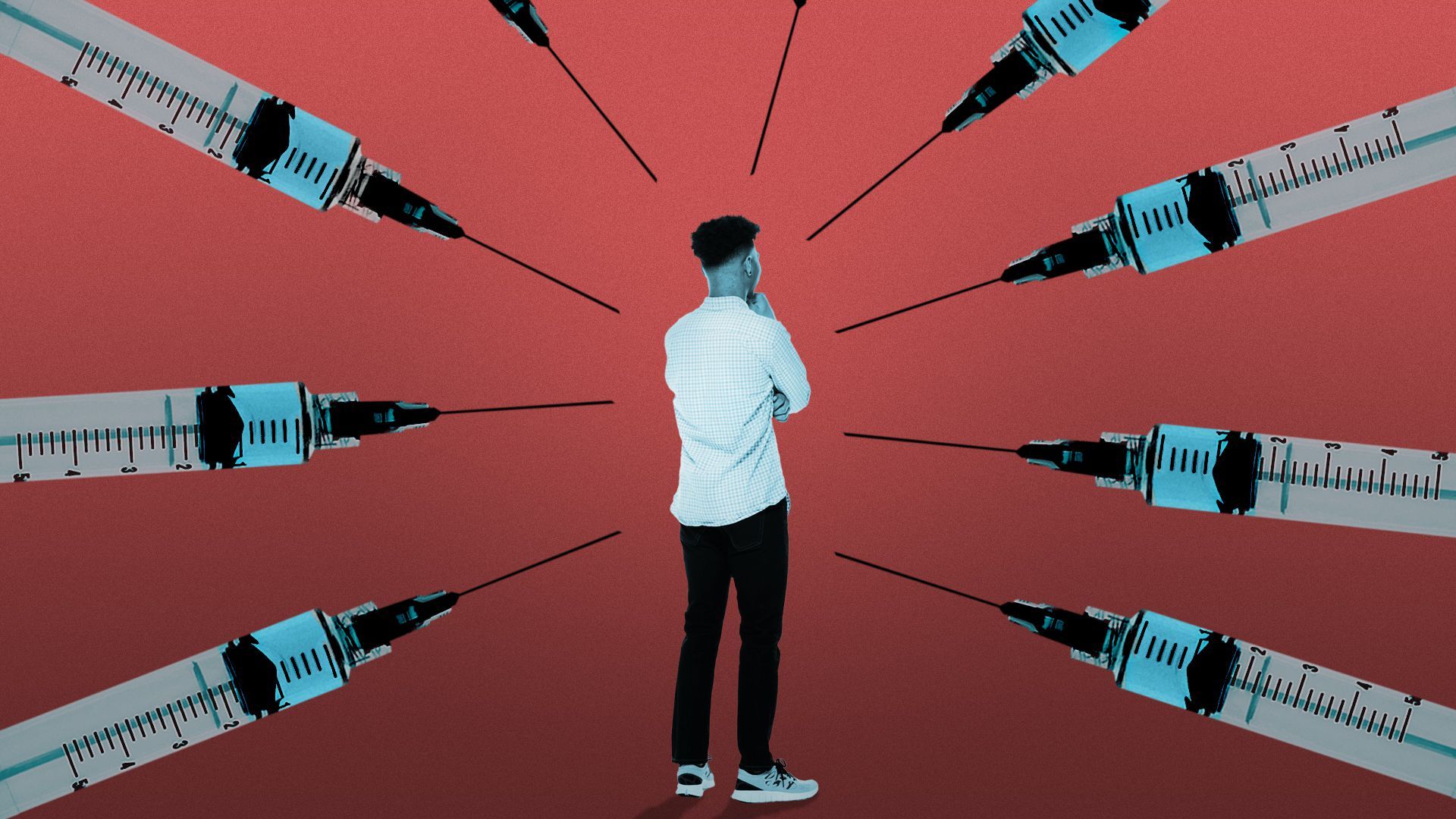What the new vaccine data does and doesn't tell us
Add Axios as your preferred source to
see more of our stories on Google.

Illustration: Shoshana Gordon/Axios
The new coronavirus vaccine data released yesterday by the CDC confirms what other recent research has been saying: The coronavirus vaccines' effectiveness against infection has decreased over time.
Between the lines: There's little to no data that the vaccines' effectiveness against hospitalization will eventually follow suit.
- But the fact that it could is the Biden administration's main justification for a massive booster campaign — a risk-averse approach that's being criticized as unethical by some experts.
Driving the news: The CDC released three new studies focusing on the vaccines' effectiveness, particularly in light of the Delta variant.
- One looked at Pfizer and Moderna's effectiveness against infections among nursing home residents over time, and found that it dropped from 75% pre-Delta to 53% when Delta became dominant. It didn't differentiate between asymptomatic, symptomatic and severe infections.
- Another used data from 21 hospitals to estimate the mRNA vaccines' effectiveness against hospitalization over time, and found there was no significant change in effectiveness from mid-March to mid-July.
- The third, using New York state data, found that all three vaccines' effectiveness against infection dropped from 92% in early May to 80% at the end of July, but the effectiveness against hospitalization remained relatively stable.
Reality check: This is all good news for most vaccinated people — your vaccines will keep you alive and out of the hospital.
- It's not so great for some vulnerable populations, particularly nursing home residents, who may be less protected than they'd thought.
- "Additional evaluations are needed to understand whether protection against severe disease in nursing home residents is also declining over time," the nursing home study warns.
- Residents' risk level is compounded by the high rate of unvaccinated nursing home employees.
Be smart: The Biden administration's worst nightmare is finding out about declining effectiveness by a spike in real-world death rates in a few months. They've instead decided to get ahead of the virus by boosting most people's level of protection, starting with the most vulnerable.
What we're watching: Recent Israeli data suggests that vaccine effectiveness against severe disease has fallen over time among adults 65 and older who haven't received a booster shot.
- We need way more data to know if the trend is real. It's still entirely possible the vaccines remain effective against severe disease well into the future — at least for the younger population — meaning the U.S. jumped the gun on extra shots.
- But if it is an accurate foreshadowing of how the vaccines will work in the U.S., the Biden administration's decision will likely save American lives — which is the ultimate point of the booster decision.
